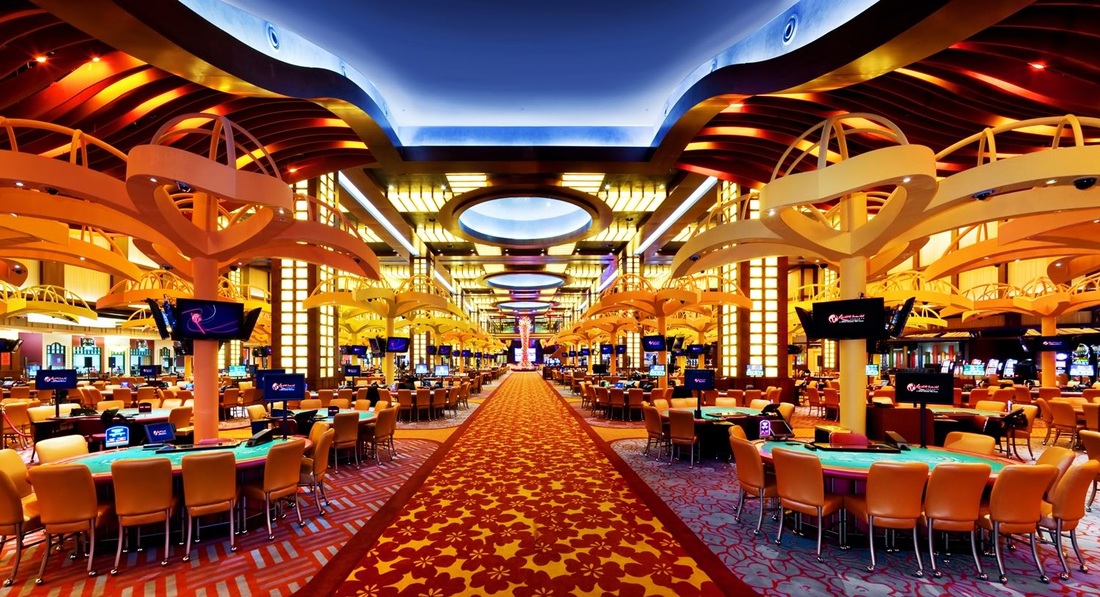
Casino games have long been a significant aspect of human culture, delivering not just entertainment but a captivating reflection of our hopes, dreams, and anxieties. From the spinning reels of a slot machine to the skill-based strategies of poker, these games embody a range of human emotions and events. At their core, casino games are more than a chance to earn cash; they are a microcosm of life itself, where danger and gain converge and luck can change in an eye blink. non GamStop casinos
As players convene around tables or sit in front of brightly lit machines, they engage in a ceremony that transcends mere playing. These games mirror our instinctive desires for relationships, thrill, and the quest for chance. They also reveal deeper truths about human nature, such as our relationship with fate and the thrill of the unknown. In exploring casino games, we discover not only the mechanics of play but also the rich tapestry of the human journey, showcasing our interconnected narratives of aspiration and reality.
The Psychology of Gambling
Gambling is deeply rooted in human psychology, tapping into various emotions and desires. The thrill of risk-taking is a fundamental aspect that draws players in, be it the excitement of spinning a roulette wheel or the anticipation of drawing a winning card in poker. This adrenaline is often compared to other forms of excitement, as the uncertainty of outcomes triggers a unique psychological response. Gamblers often find themselves entranced by the chance of winning big, leading to an almost magnetic draw toward gambling games.
Another, a crucial component of the psychology behind gambling is the concept of optimism and ambition. Players often indulge in fantasies of financial freedom and the opulent lifestyle that can accompany winning. This hope fuels their ongoing participation in gambling, as it provides a sense of meaning and the conviction that a life-changing win could be just one wager away. The narrative of beating the odds and finding success resonates with many, reinforcing their dedication to play and involve themselves with these games.
Lastly, social dynamics play a crucial role in gambling psychology. Casino environments are designed to promote social interaction, where players gather to share the experience of wins and losses. This communal aspect not only enhances enjoyment but also affects behavior, as individuals often mimic the actions of others around them. The collective approval found in shared excitement can magnify the emotional experience, making casino games a mirror of not just personal desires but also shared involvement within the gaming community.
## The Dual Nature of Risk and Reward
Gambling games embody the subtle balance between risk and gain that resonates profoundly with human psychology. The excitement of placing a bet is often accompanied by a surge of excitement, as gamblers are confronted with the prospect of a huge payout, yet conscious of the possibility to suffer losses. This bipartisan experience reflects a core aspect of life: the decisions we face often come with built-in risks, and the quest for benefit can drive us to take chances we might not typically consider. In this way, casino games mirror real-world choices, enticing players to risk not just their money, but also their hopes.
The allure of grand jackpots and winnings fuels a sense of optimism, encouraging players to envision a better future that could manifest from a single victorious spin of the roulette or dealing of a hand. This optimism can compel individuals to engage in riskier behaviors, urging them to extend their limits in search of financial gain. However, just as in life, the outcomes of these risks can lead to both triumph and failure. The stories of both jackpot winners and those who have suffered everything at the tables demonstrate the random nature of luck and its significant repercussions on our existence.
Ultimately, the experience of engaging with gambling activities serves as a strong reminder of the nature of humanity. Every session played is filled with the tension of risk, as gamblers weigh the gains against the risks. This balance not only highlights the thrill that comes with gambling but also exposes the weaknesses that come with the urge for more. As we explore the challenges of choice and consequence in both the gambling world and in life, we find that the quest for gain shapes our identities and lives in significant manners.
Community and Solitude in Gambling Environment
Gambling culture is a unique blend of communal engagement and personal endeavor, reflecting the contrasts of individual experience. Players often come together around games, experiencing in the thrill of the action, rejoicing in wins, and commiserating over losses. This social aspect is vital, as it creates a sense of belonging and camaraderie among diverse groups of people. Regular attendees to gaming establishments may form friendships and establish routines, turning the casino into a second home where they feel linked to a greater community of players.
However, the allure of gambling activities can also result to loneliness. As players become engrossed in the thrill of gambling, they may withdraw from personal connections or fail to interact with the environment outside the gaming space. For some, the pursuit of a windfall can overshadow real connections, leading to isolation. The experience of being surrounded people yet feeling solitary is not rare, as the attention shifts from shared enjoyment to the private concerns of each player’s journey.
This interplay of community and isolation creates a rich mosaic that defines casino atmosphere. It showcases the complexity of social interactions, where happiness and despair exist together. Casinos serve as both a sanctuary for social engagement and a stage for individual struggles, demonstrating how deeply entwined our desire for connection and the personal quest for wealth can be. In navigating this environment, gamblers confront their own narratives—seeking both the thrill of the wager and the companionship of other players, eventually mirroring the broader spectrum of human experience.
